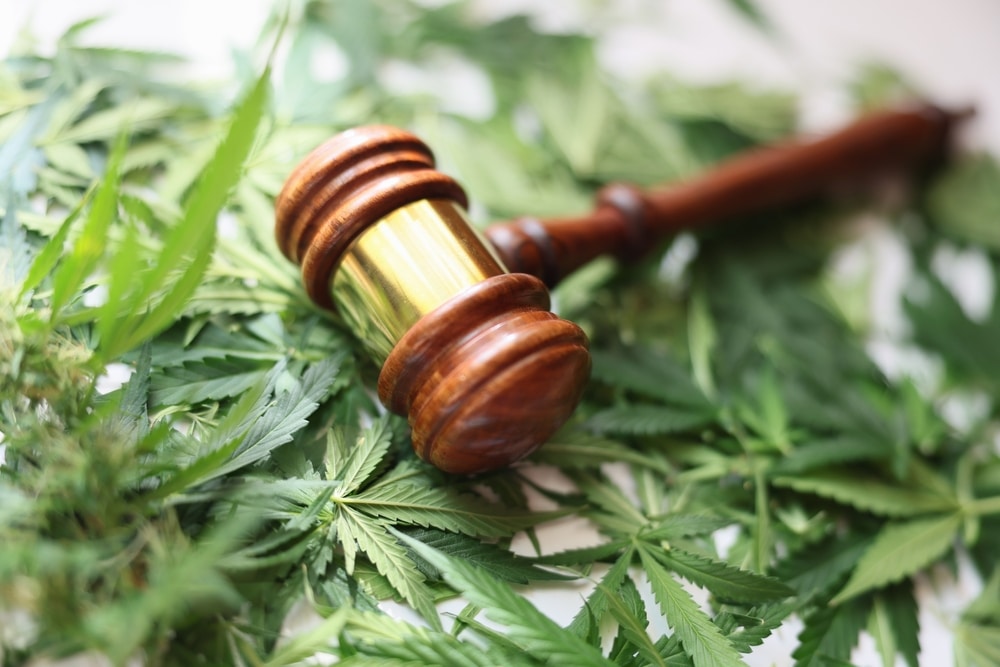
Connecticut prosecutors drop 1,500 cannabis charges
The Connecticut Attorney General announced last week that prosecutors have dismissed more than 1,500 pending cannabis criminal cases involving offenses that are no longer against the law. In a letter sent March 31 to a Connecticut Legislative Committee, Chief Attorney Patrick J. Griffin reported that prosecutors reviewed more than 4,000 pending drug possession cases and dropped the charges in 1,562 of them.
In June 2021, Connecticut lawmakers passed legislation legalizing personal quantities of marijuana and regulating commercial cannabis production and sale. The ownership rules went into effect a month later, and dispensaries began regulated recreational marijuana sales in December 2022.
The Legalization Act also included provisions to overturn previous cannabis-related convictions in cases involving up to four ounces of cannabis. In January, Connecticut Governor Ned Lamont announced that he had “overturned 42,964 cannabis convictions” under the legislation. But the deletion provisions didn’t specifically clarify the charges of pending marijuana possession cases, a point later clarified by lawmakers.
“Legislators have made it clear to the Department of Criminal Justice that the new cannabis laws are intended to apply to individuals whose charges were pending at the time the law went into effect,” Griffin said in a statement cited by CTInsider. “The department understood the intent of the legislature and conducted an expedited review of their files to respect the wishes of the legislature. The prosecutors and their offices should be commended for their efforts and commitment to addressing these cases in such a timely manner.”
Over 4,000 pending drug possession cases reviewed
The charges dropped by prosecutors represent cases pending when the legalization law went into effect. In addition to the 1,562 charges dropped, about 600 others involving multiple charges were modified to remove the cannabis charge from the case. Griffin told lawmakers that his office must review each of the more than 4,000 pending cases individually, citing state laws that combine cannabis with other controlled substances like heroin and cocaine.
“It was the joint position of this committee and the department that individuals charged with possession of a cannabis-related substance offense that was later decriminalized should not be prosecuted for that offense,” Griffin wrote in his letter last week the legislature. “Hence, the identification of these cannabis cases could not be achieved solely through a computerized review of pending cases.”
“It was not an easy task and quite labor intensive,” he added.
Griffin sent his letter to the General Assembly Judiciary Committee, which last week was considering a new bill directing prosecutors to stop prosecuting cannabis possession cases. The bill, HB-6787, also creates a procedure to automatically amend all valid marijuana convictions identified by prosecutors and direct the courts to determine whether an exemption or an amend-ment is warranted. The measure passed the panel by a vote of 27 to 10, although Rep. Steve Stafstrom, the committee’s co-chair, said the bill is likely to be amended as the legislative process progresses.
“This clears up confusion that may have arisen as part of the cannabis legalization process, where certain offenses that were pending prior to cannabis legalization remained pending after the passage of that legislation,” Stafstrom said March 31. “I want to express my sincere gratitude to the Office of the Attorney General, who I know listened to the concerns, the bipartisan concerns, of this committee at the public hearing regarding the dismissal of these cases.”
Connecticut Activists welcome dropped charges
Griffin’s move to drop the pending marijuana cases was warmly welcomed by cannabis policy reform advocates, including Paul Armentano, deputy director of the National Organization for Marijuana Law Reform.
“Hundreds of thousands of Americans unfairly bear the burden and stigma of a prior conviction for conduct that most Americans and a growing number of states no longer consider a crime,” Armentano said in a statement from the Cannabis Policy Reform Group. “Our sense of justice and principles of fairness require that officials and courts act swiftly to right the past wrongs of cannabis prohibition and criminalization.”
Sarah Gersten, executive director and general counsel of the Last Prisoner Project, a nonprofit group dedicated to ensuring the release of all cannabis prisoners, commended Griffin’s move and urged lawmakers to approve HB-6787.
“We applaud Attorney Patrick Griffin for dismissing more than 1,500 pending cannabis cases and amending approximately 600 others. This announcement marks a tremendous step toward achieving justice in Connecticut,” Gersten wrote in an email to High Times. “However, the passage of HB-6787 is still critical to ensure those currently incarcerated have an equal opportunity to have their sentences reviewed and potentially ended. It is unscrupulous that some in Connecticut remain incarcerated for cannabis while others benefit from the very same activities.”

Post a comment: